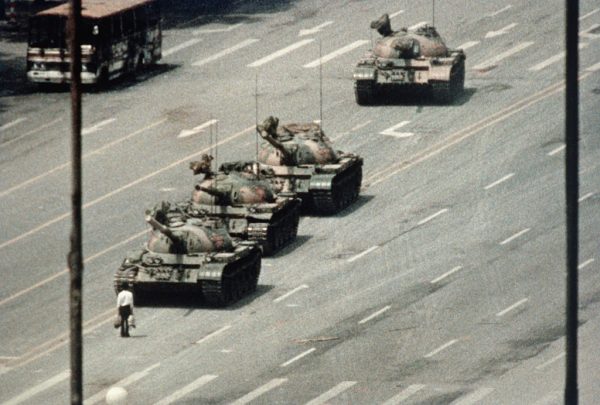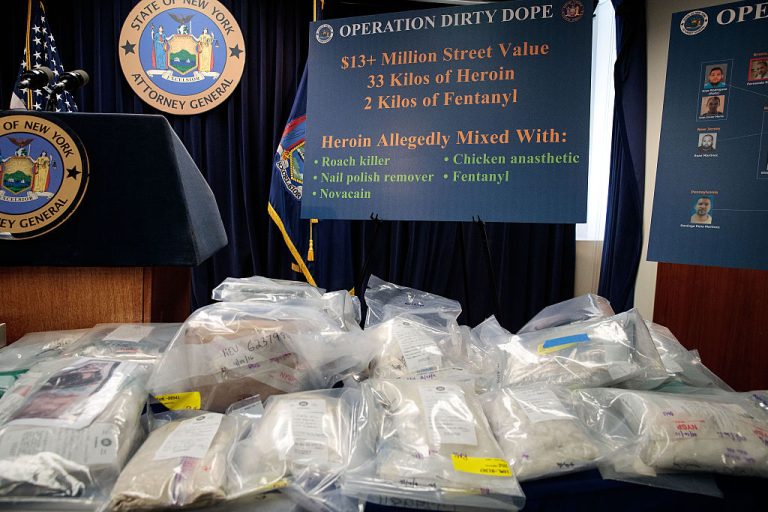Every year, people in China and abroad gather to commemorate the droves of student protesters who died fighting for democratic rights in Beijing’s Tiananmen Square on June 4, 1989.
Although the Chinese Communist Party (CCP) claims that around 200 civilians and several dozen soldiers lost their lives during what is termed a “violent riot,” most estimates put the number of dead in the thousands, almost all of them unarmed civilians. The exact number of casualties is unknown as the CCP has been known to conceal the release of accurate statistics.

As in previous years, as the sensitive date approaches, the regime has tightened their security and ramped up surveillance efforts targeting dissidents and activists in the country.
RELATED:
- Chinese State-linked Newspaper Brands Hong Kong Journalist Association as ‘Anti-China,’ Calls for Its Disbandment
- Now Banned in Hong Kong, Vigil Honoring Victims of Tiananmen to Be Moved to Taiwan
- Citizen Journalist Jailed in Shanghai for Speaking Out Against ‘Zero-COVID’ Policy
Liberty or death
A prominent labor movement leader known as Li Wangyan died in police custody on June 6, 2013 — just two days after spearheading a peaceful event to commemorate the victims of the Tiananmen massacre in his hometown of Shaoyang in Hunan Province. Radio Free Asia (RFA) reported that Li’s death came after years of undergoing torture and abuse while he was imprisoned, prompting suspicions of foul play tied to his death.
Li was 62 years old when he died at a hospital in Shaoyang city. When his relatives arrived at the scene, they said his body was “hanging by the neck from the ceiling near his hospital bed,” and both police officers and hospital staff there refused to conduct an autopsy in order to confirm the cause of death. They just told us that he had died by suicide, the family said.
Success
You are now signed up for our newsletter
Success
Check your email to complete sign up
After Li’s death, relatives, friends, and human rights groups across the country called into question several hazy details surrounding both the circumstance and timing of his death, which they claim point to the “possibility of foul play.”
Li was a former worker in a glass factory and was jailed for a total of 13 years for “counter-revolutionary efforts” after taking part in several peaceful demonstrations to raise awareness of the student-led protests in Beijing.
He was later sentenced to an additional 10 years in prison for “incitement to overthrow state power” after he called for a reappraisal of the official verdict on the Tiananmen crackdown. His family said Li was blind in both eyes and had lost nearly all his hearing at the time of his death.
‘Everyone still remembers him’
Activists in the central province of Hunan told RFA that they will be observing the anniversary of Li’s death, as well as the 33rd anniversary of the June 4 Tiannman massacre, even if they have to hold these events in secret due to the risk of prosecution and arrest.
“It’s the 10th anniversary of Li Wangyang’s death,” Hunan activist Ouyang Jinghua told RFA. “He passed away on June 6, which happened to be close to June 4 [the massacre anniversary].”
“He suffered a lot for the cause of democracy,” Ouyang said. “Everyone still remembers him,” adding that some activists in the area had attempted to organize a collective commemoration for Li but were apprehensive of whether the event could go ahead, given the tightened security.
“Some people from Changsha, Hengyang and Zhuzhou are supposed to be coming, but we don’t know how many people will make it, due to the obstacles placed by the authorities,” he told RFA. “It’s possible that none of them will be allowed to come.”
Ouyang added that a sizable number of human rights activists and democracy campaigners in Hunan are still hoping to “achieve justice” for Li, even posthumously. Since its inception in 1949, the CCP has targeted and arrested thousands of activists and civilians who dare to speak out against government policy in any capacity. Hundreds of thousands of people have since been subject to torture beatings, arbitrary imprisonment, travel bans, and relentless harassment at the hands of Chinese police.
“We have a lot of doubts about the explanation of the cause of his death,” Ouyang said, highlighting the connection between Li’s death taking place two days after the anniversary of the Tiannamen massacre. “The authorities should explain it clearly, but I don’t think they will, because to do so would shake their basis to hold power; the whole regime.”
Ordered to ‘drink tea’ with CCP officials
Another prominent dissident and activist the CCP has had their eye on is Zhu Chenzhi — a prominent dissident and Hunan native. Authorities have been monitoring Zhu under the guise of “stability maintenance operations.”
Zhu was first detained in April 2018 after visiting the grave of Lin Zhao. Lin, who was a young woman living under communist ruler Mao Zedong, famously wrote her mother a letter using her own blood after being sentenced to 20 years in prison for forming a “counterrevolutionary clique” in defiance against Mao’s role in the Great Chinese Famine.
China’s great famine caused the death of over 36 million people resulting from a combination of radical agricultural policies, social pressure, economic mismanagement, and natural disasters brought on by droughts and floods throughout the country’s farming regions.
After his arrest, Zhu was sentenced to Dinshang Prison in the eastern Province of Jiangsu and was released earlier this year after serving a three-year, nine-month prison term for “picking quarrels and stirring up trouble,” — a charge frequently used to target critics of the CCP.
Zhu first landed on the CCP’s radar after he questioned Li’s death in 2013, and had been previously held on “charges of subversion” after he requested further information on the official verdict ruling of Li’s death while in police custody.
“Zhu Chengzhi recently arrived in Changsha, Hunan, and some friends in the city met up with him,” Ouyang told RFA. “Anyone who met with him was called in to ‘drink tea’ with the state security police.”
Stern warnings and forcible relocations
Other dissidents in Beijing have said that some of them are being told by authorities that they need to “leave town” ahead of the Tiananmen anniversary this year, due to ongoing travel restrictions stemming from the country’s stringent “zero-COVID” policies.
Political commentator Ji Feng said he had been forced to leave his home in Guizhou and isn’t sure where state police will be taking him.
“They’re taking me away on [the morning of June 1]” Ji told RFA. “I will have the same state security bureau chief with me, eating and drinking with me, around June 4.”
Ji added that other outspoken activists, such as veteran political journalist Gao Yu, dissident artist Yan Zhengxue, and writer Jiang Qisheng were all confined to Beijing despite being told that they had to leave. The Chinese capital of nearly 22 million people has been subjected to movement curbs and travel restrictions as the city faces an increasing number of new infections. Authorities in Beijing have implemented daily mass testing in an effort to curb further spread of the virus.
Meanwhile, an anonymous dissident in the southern province of Guangdong said many activists in the area were warned about bringing up “sensitive topics” leading up to the Tiananmen anniversary, and some were even forcibly relocated.
“State security police moved me into a basic house about 20 kilometers (about 12.5 miles) from Enping,” the dissident said. “It’s pretty remote; there’s nobody else living round there, but there are surveillance cameras everywhere.”
“As soon as I leave my house, my phone will ring, and they’ll ask me where I’m going,” the source told RFA.















